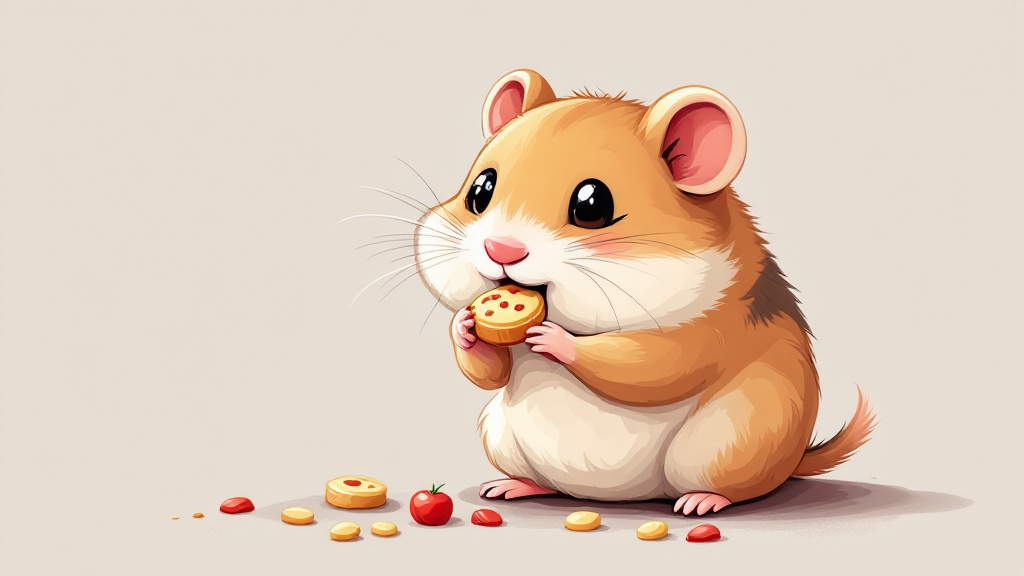Feeding hamsters rabbit food can be a concern for pet owners who may have both animals or accidentally purchase the wrong food. The short answer is that while hamsters can eat some types of rabbit food, it is not recommended as a staple diet due to significant differences in their nutritional needs.
Understanding the Differences Between Hamster and Rabbit Diets
Hamster Diet (Omnivores)
Hamsters are omnivores, which means their diet needs to include both plant and animal matter. They require a balanced diet with the right amounts of protein, fiber, and fat to maintain their health. Protein, in particular, is crucial for hamsters, as they need 15-20% protein in their diet to meet their nutritional needs.
Rabbit Diet (Herbivores)
In contrast, rabbits are strict herbivores. Their diet primarily consists of grass, hay, vegetables, and some fruits. Unlike hamsters, rabbits do not need animal protein and rely on high fiber content to support their digestive system. This fundamental difference between the dietary needs of hamsters and rabbits is important when considering what to feed your hamster.
Safe Rabbit Foods for Hamsters
While not all rabbit foods are suitable for hamsters, there are a few components that hamsters can safely consume. It’s important to ensure these foods are given in moderation and not as a replacement for a balanced hamster-specific diet.
Grass Hay
Certain types of grass hay are safe and beneficial for hamsters, such as Timothy hay, oat hay, and meadow hay. These hays are excellent sources of fiber, which helps aid digestion and supports a healthy gut. Additionally, the coarse texture of grass hay helps to wear down hamsters’ teeth, which continuously grow and need regular trimming.
Vegetables
Several vegetables are safe for both rabbits and hamsters, making them a great shared snack option. Some of the most hamster-friendly vegetables include:
- Romaine lettuce: Low in calories and water content, making it a safe leafy green.
- Broccoli: High in fiber and vitamins, but should be fed in moderation to avoid bloating.
- Carrots: A good source of vitamin A, but due to their sugar content, they should be given sparingly.
- Bell peppers: Rich in antioxidants and vitamins, these are a crunchy, nutritious option.
- Cucumbers: Hydrating and light, cucumbers make a refreshing snack for hamsters.
Fruits
Some fruits that are safe for both rabbits and hamsters include:
- Apples (without seeds): Apples provide a sweet treat, but always ensure the seeds are removed, as they contain cyanide.
- Strawberries: Rich in vitamins, these berries make a tasty treat when given in small amounts.
- Bananas: High in potassium and fiber, bananas are fine for hamsters in small quantities, though their sugar content calls for caution.
Always offer fruits in moderation due to their natural sugar content, which can contribute to weight gain and other health issues in hamsters if overconsumed.
Foods to Avoid
While some rabbit foods are safe, there are several that should be avoided to prevent health problems in hamsters. These foods often contain nutrients that are inappropriate for a hamster’s diet.
Rabbit Pellets
Rabbit pellets are not suitable for hamsters as they are formulated with a high fiber content but lack the necessary protein that hamsters need. Hamsters require 15-20% protein in their diet, which rabbit pellets typically do not provide. Feeding rabbit pellets can result in an imbalanced diet and lead to nutritional deficiencies.
High-Calcium Hays
High-calcium hays like alfalfa hay should be avoided for hamsters. While these hays are suitable for rabbits, the excess calcium can cause urinary issues in hamsters, such as bladder stones. It’s best to stick with grass hays like Timothy or meadow hay for hamsters.
Muesli-Based Diets
Muesli-based rabbit diets should also be avoided for hamsters. These diets often contain sugary and fatty bits that hamsters tend to pick out, which can lead to an unbalanced diet. Consuming too much sugar can contribute to obesity and diabetes, especially in dwarf hamster species.
Conclusion
In summary, while certain rabbit foods such as grass hay, vegetables, and some fruits are safe for hamsters in moderation, a hamster-specific diet should always be prioritized. Feeding your hamster foods that meet their unique omnivorous dietary needs ensures they stay healthy and happy. If you’re ever unsure about what to feed your pet, it’s always a good idea to consult with a veterinarian to receive personalized advice tailored to your hamster’s health and nutritional needs.

